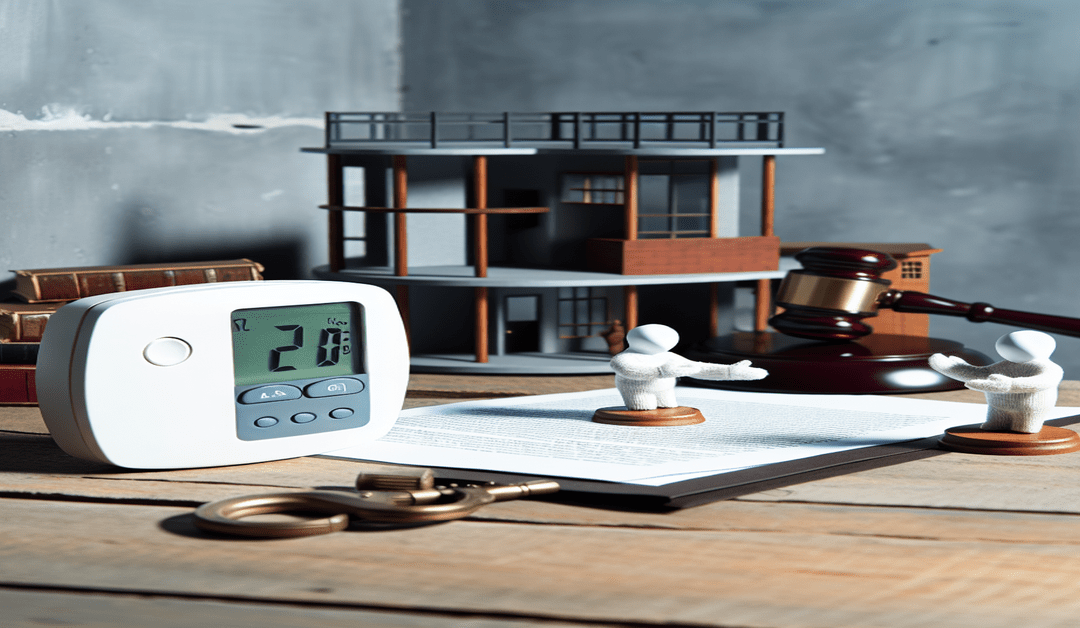EcoFactor v. Google: Examining the Battle Over Expert Testimony in Patent Litigation
In the realm of patent litigation, the admissibility of expert testimony can make or break a case. The recent oral arguments held at the Federal Circuit Court of Appeals in the case of EcoFactor, Inc. v. Google LLC have brought this issue to the forefront, with far-reaching implications for the industry. As an expert in the field, I invite you to delve into the intricacies of this case and explore its potential impact on future patent disputes.
The Heart of the Matter: EcoFactor’s Expert Testimony
At the center of this legal battle lies the testimony of EcoFactor’s damages expert. EcoFactor, a company specializing in smart thermostat technology, sued Google for patent infringement and was awarded damages based on their expert’s testimony regarding a reasonable royalty rate[4]. However, Google argues that the testimony was unreliable and lacked a factual basis, violating Federal Rule of Evidence 702 and the *Daubert* standard[1][4].
The *Daubert* standard, derived from the landmark Supreme Court case *Daubert v. Merrell Dow Pharmaceuticals*, serves as a gatekeeper for expert testimony in federal courts. Under this standard, judges must assess the reliability and relevance of expert testimony before allowing it to be presented to a jury. Google contends that the district court failed to properly apply this standard, permitting EcoFactor’s expert to present flawed and unsupported opinions.
The Clash of Legal Titans: Oral Arguments at the Federal Circuit
During the oral arguments, Google’s counsel, Ginger Anders, likely emphasized the district court’s alleged failure to rigorously examine the expert’s methodology. According to Google, the expert relied on unsupported assumptions about how licensees applied royalty rates, rendering the testimony unreliable[1][4].
On the other hand, EcoFactor’s counsel, Brian Ledahl, would have countered that the expert’s testimony was properly admitted and grounded in widely accepted methodologies, such as analyzing comparable licenses under the *Georgia Pacific* factors[1][4]. These factors, which originated from the case *Georgia-Pacific Corp. v. U.S. Plywood Corp.*, provide a framework for determining a reasonable royalty in patent infringement cases.
The Gatekeeper’s Role: The Importance of Rule 702
The Federal Circuit’s review of this case hinges on whether the district court correctly applied Rule 702 in allowing the expert testimony. This rule, which codifies the *Daubert* standard, requires judges to scrutinize the reliability and relevance of expert testimony before admitting it. The rule aims to prevent juries from being swayed by unreliable or irrelevant expert opinions.
The EcoFactor v. Google case highlights the crucial role of judges as gatekeepers in ensuring the integrity of expert testimony. It underscores the need for rigorous examination of an expert’s methodology, assumptions, and factual basis. The outcome of this case will likely provide valuable guidance to district courts on how to properly apply Rule 702 in patent litigation.
Ripple Effects: The Broader Implications for Patent Litigation
The Federal Circuit’s decision in EcoFactor v. Google will have far-reaching consequences for patent litigation. It will not only impact how damages are calculated but also set a precedent for the evaluation of expert testimony in future cases[4].
If the Federal Circuit upholds the district court’s decision to admit EcoFactor’s expert testimony, it may signal a more lenient approach to the admissibility of expert opinions in patent cases. This could potentially lead to an increase in speculative or unreliable damages theories being presented to juries.
Conversely, if the Federal Circuit finds that the district court erred in its application of Rule 702, it could lead to a more stringent standard for the admission of expert testimony. This would require parties to ensure that their experts’ opinions are well-supported by reliable data and sound methodologies.
Engaging the Industry: Your Thoughts Matter
As an industry professional, your insights and perspectives on this case are invaluable. I encourage you to share your thoughts on the admissibility of expert testimony in patent litigation. How do you think the Federal Circuit’s decision will shape the future of patent damages calculations? What steps can experts take to ensure their opinions meet the *Daubert* standard?
By engaging in this discussion, we can collectively navigate the evolving landscape of patent litigation and ensure that expert testimony remains a reliable and valuable tool in the pursuit of justice.
#PatentLitigation #ExpertTestimony #DaubertStandard #FederalCircuit
-> Original article and inspiration provided by PatentlyO
-> Connect with one of our AI Strategists today at ReviewAgent.ai

